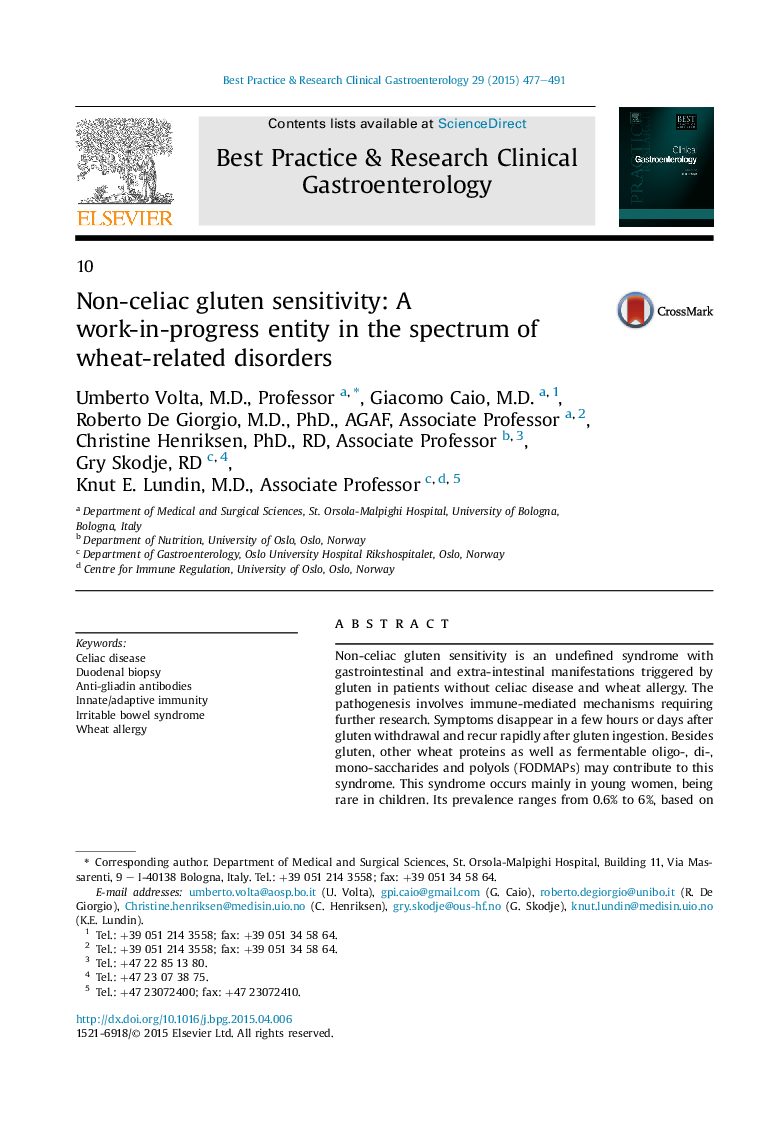| Article ID | Journal | Published Year | Pages | File Type |
|---|---|---|---|---|
| 3254240 | Best Practice & Research Clinical Gastroenterology | 2015 | 15 Pages |
Non-celiac gluten sensitivity is an undefined syndrome with gastrointestinal and extra-intestinal manifestations triggered by gluten in patients without celiac disease and wheat allergy. The pathogenesis involves immune-mediated mechanisms requiring further research. Symptoms disappear in a few hours or days after gluten withdrawal and recur rapidly after gluten ingestion. Besides gluten, other wheat proteins as well as fermentable oligo-, di-, mono-saccharides and polyols (FODMAPs) may contribute to this syndrome. This syndrome occurs mainly in young women, being rare in children. Its prevalence ranges from 0.6% to 6%, based on primary or tertiary care center estimates. No biomarker is available, but half of patients tests positive for IgG anti-gliadin antibodies, which disappear quickly after gluten-free diet together with symptoms. Also, genetic markers are still undefined. Although currently limited to a research setting, double-blind, placebo-controlled, cross-over trial strategy is recommended to confirm the diagnosis. Treatment is based on dietary restriction with special care to nutrient intake.
